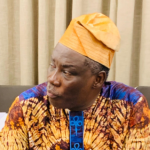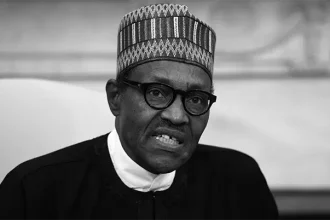The Director-General of the World Trade Organization, Dr. Ngozi Okonjo-Iweala, has cautioned that Nigeria’s low internet penetration, with over half of the population offline, could hinder the country’s ability to benefit from the rapidly expanding global digital trade market.
Speaking at the launch of the Women Exporters in the Digital Economy Fund in Abuja on Thursday, she revealed that only 45 per cent of Nigerians have internet access, significantly below the global average of 67 per cent.
Dr. Okonjo-Iweala stated, “No nation can truly digitize without a steady supply of electricity and reliable, affordable internet. More than half of Nigerians remain disconnected, and this gap must be closed if we are to seize the opportunities of digital trade.”
She emphasized the urgent need for improved infrastructure to enable Nigeria to compete in digital commerce, which she noted is valued globally at $4.25 trillion and represents the fastest-growing segment of world trade, with Africa currently accounting for less than 1 per cent of this market.
The WTO DG announced that Nigeria was selected alongside Jordan, Mongolia, and the Dominican Republic for the 2024 rollout of the WEIDE Fund following a highly competitive process.
“Nigeria is one of four countries chosen for the WEIDE Fund’s 2024 rollout, alongside Jordan, Mongolia, and the Dominican Republic, after a highly competitive selection process,” she said.
The Nigerian Export Promotion Council, led by Executive Director Nonye Ayeni, will oversee local implementation of the initiative.
The program attracted remarkable interest, with Dr. Okonjo-Iweala revealing: “Over 67,000 Nigerian women entrepreneurs applied for the fund. Due to the exceptional quality of entries, the number of beneficiaries was increased from 100 to 146 awardees.” Selected participants will receive varying levels of support, with “sixteen entrepreneurs in the Booster Track will each receive up to US$30,000 and 18 months of technical assistance,” while “one hundred and thirty entrepreneurs in the Discovery Track will each get up to US$5,000 and a year of business support.” The beneficiaries represent diverse sectors including agriculture, IT, fashion, hospitality, beauty, and manufacturing.
Highlighting the transformative potential of international trade for women, Dr. Okonjo-Iweala added: “When women trade internationally, they earn almost three times more than those who sell locally. The WEIDE Fund is about giving Nigerian women the tools, skills, and market access to multiply those gains.” She called for coordinated action among government ministries, urging collaboration between the Ministries of Communications, Industry, and Power to address infrastructure challenges and create an enabling environment for digital trade.
Supporting the initiative, Minister of Communications, Innovation, and Digital Economy Dr. Bosun Tijani commended women entrepreneurs for their problem-solving approach, stating: “Empathy is women’s superpower in business, and it is this empathy that creates solutions with lasting impact.”
NACCIMA President Dr. Dele Oye praised the program’s alignment with Nigeria’s economic ambitions, noting its role in advancing the country’s digital trade capabilities and contribution to building a $1 trillion economy.
The WEIDE Fund represents a significant step toward empowering Nigerian women entrepreneurs while addressing critical infrastructure gaps that currently limit the country’s participation in the global digital marketplace.






